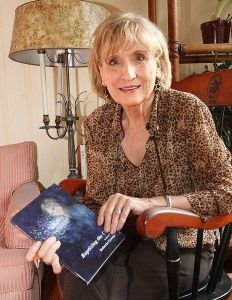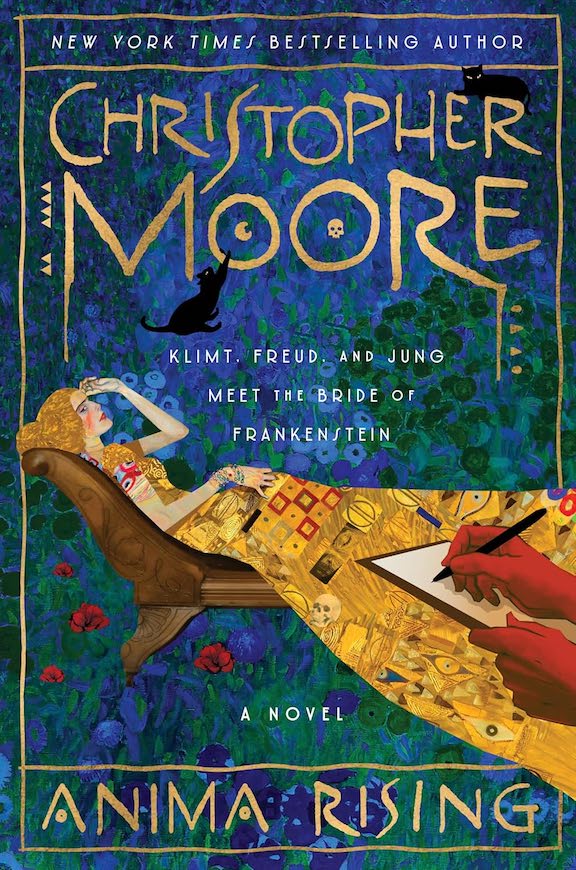ROBERTA GEORGE: Don’t go back to sleep
Published 7:45 am Monday, January 6, 2025

Roberta George is the founding publisher of Snake Nation Press and a former executive director of the Annette Howell Turner Center for the Arts.
What is it with spouses of writers, especially women writers? The spouses, usually men, are always interrupting the sacred writerly process, and the women writers are always complaining. The men, usually husbands, tap on the door, sometimes they even call on the phone that’s in the writers’ purse, for there’s always a reason why the woman should come out and do what? Prepare lunch, check on the children who are taking naps, or they’re just making sure the writer is there behind that door. “You’d think,” the women writers say, “when I close the office or bedroom door, that I’d run away with a lover.”
“Well, in a way you have,” I say, and, being a woman writer, I can admit it. For in the small world I create behind that door, I can have anything I desire: I can be a young teenage girl again with curly red hair, something I never had in real life. I can live an exotic life in a far-off country, with or without children. And lovers, oh boy, if they’re not good, at least they’re interesting.
And let’s face it, lurking behind those doors, there’s always the off chance of the writing becoming a big hit. I admit it’s a long shot. That the poem, or short story, or even the novel might be a smash and might win the big-money prize. It’s happened before right here in Lowndes County, Georgia. Virginia Lanier often told this story to the Snake Handlers Writing Group at the Turner Center for the Arts. In 1995 and at age 65, she and her husband were living in South Georgia in a trailer that had very few amenities. He would bring home discarded paperbacks he found in the trash, and once or twice she complained that the stories in those books were poorly written, boring, and that even she could write better. To challenge her, he brought home an old typewriter, also found in the trash, and told her, “Well write a better one then,” and she did. Her first novel, “Death in Blood Hound Red,” was sent out to 17 publishers, with only one acceptance from Pineapple Press in south Florida.
But at the end of that year, Lanier’s debut novel “Death in Bloodhound Red” won the 1996 Anthony Award for “Best First Novel” and was also nominated for the same honor at the Agatha Awards the previous year. You can still buy the First Addition at Thrift Books for $150. Her fourth novel, “Blind Bloodhound Justice,” was nominated for the 1998 Agatha Award in the “Best Novel” category. Lanier’s last novel, “A Bloodhound to Die For,” was nominated for the Mary Higgins Clark Award at the 2004 Edgar Awards. As of 1998, the Jo Beth Sidden series was optioned to be the basis for a Hollywood movie or a TV mini-series.
My husband, I’m afraid was also very typical, always interrupting, always tapping on the door, always wondering what “I was up to in there,” just me and the computer. Still, one way I avoided those interruptions was to wake up at 3 o’clock in the morning and write for two hours, a habit I’d fallen into when I was taking in sewing and had to finish a hem or dress for a customer. Also, there’s always an odd mood floating around in the air at 3 a.m. Rumi, the Persian poet, says that the muse wakes you up in those early morning hours with ideas and inspiration. “So,” he advises, “don’t go back to sleep.”
On a much smaller scale, I’ve had my share of unexpected successes. In 2009, a short story of mine and a poem, both won a first and second prize in the Porter Fleming Contest held by the Augusta Arts Council. What a shock! They didn’t publish the pieces, but the money, $1,500, sure came in handy. Also in 2019, a novel, “The Day’s Heat,” that I’d been working on for over 20 years, won a contest sponsored by Exeter University in England, which led to my being named Georgia Author of the Year by the Georgia Writers Association.
Still, winning contests is so infrequent that they hardly matter. It’s actually the little daily victories that keep one hacking away at the blank page. For in writing, there are all kinds of ways to feel gratified and successful: You’ve written your 500 daily words — Graham Greene’s requirement of himself — or a thousand, whatever goal you’ve set. You’ve found, at last, that perfect direction for your novel or the perfect word to go into your poem. Remember Frost’s poem, “Stopping by the Woods on a Snowy Evening,” which sat in a drawer waiting for a last line for over a year, until one evening he took it out and saw that the last line just needed repeating.
Also, a big factor in physical activities is your age but not in writing. Many sports activities are curtailed by age, which is why I always recommend golf or tennis rather than football to my grandchildren. Also, at 80 years old, one cannot join the pick-up basketball game in the park, but one can sit down and write about it as Updike did so beautifully, not that he was 80 back then. And what better way, when you’re waiting for your doctor’s visit or in the hospital with a friend, to bring along your journal and record your day and your thoughts. Virginia Woolf wrote quite a few books in her short life span, but what she is remember for most often are her journals, the upper-class England society that she recorded so faithfully. I console myself that the two servants who were always in her household were why she was able to write so much.
Most of all, what I love about writing is how when it’s going well, I actually live inside the story, feel what the main character is feeling, doing, and like in real life, always the unexpected happens.





